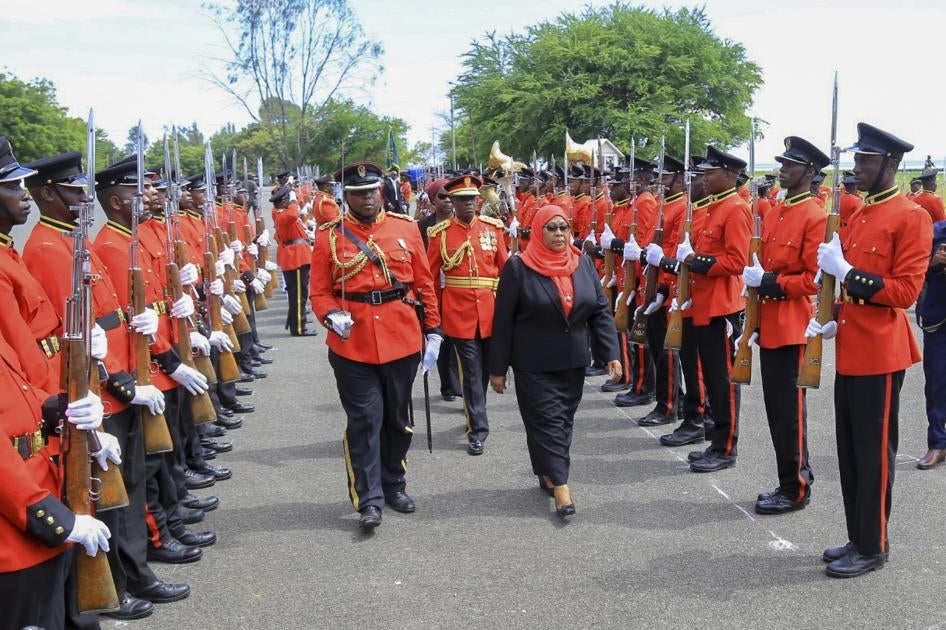Tanzania’s President Samia Suluhu Hassan last week ended a six-year ban on politicians holding political rallies and meetings outside of election periods. This is an important step in restoring some of the civil and political rights that had been curtailed under her predecessor, the late John Magufuli, but more needs to be done.
After Magufuli came to power in 2015, Tanzania’s human rights situation, particularly for freedoms of expression and association, deteriorated. The government used laws like the 2015 Cybercrimes Act and the 2016 Media Services Act to censor opposition politicians, journalists, and activists for criticizing the government and the president. In 2019, Parliament amended the Political Parties Act to give officials wide powers to deregister parties, restricting the space for opposition parties to independently operate.
Around the October 2020 general elections, which saw Magufuli reelected, the government ramped up these restrictions and arbitrarily arrested scores of opposition party leaders and supporters. Security forces in Zanzibar beat and harassed opposition supporters, killed at least 14 people, and injured at least another 55.
Hassan was appointed president after Magufuli’s death in March 2021. She has since taken some measures to respond to rights concerns.
On November 24, 2021, the government decided to allow teenage mothers into secondary schools, ended a discriminatory ban that forced pregnant students and young mothers to drop out. In February 2022, the government lifted its ban on four newspapers. And in March it dropped charges against and released Tanzania’s main opposition leader, Freeman Mbowe, after he had been detained for seven months.
Still, Hassan’s government needs to do more to ensure accountability and end abusive practices against the political opposition and critics of the government.
The authorities should conduct meaningful and impartial investigations into the abuses that marred the 2020 elections as well as the November 2017 unexplained disappearance of investigative journalist Azory Gwanda.
They should also review repressive provisions of the raft of laws restricting freedom of expression and association that were passed and enforced after Magufuli took power in 2015, which have been used to harass political opponents and government critics.









